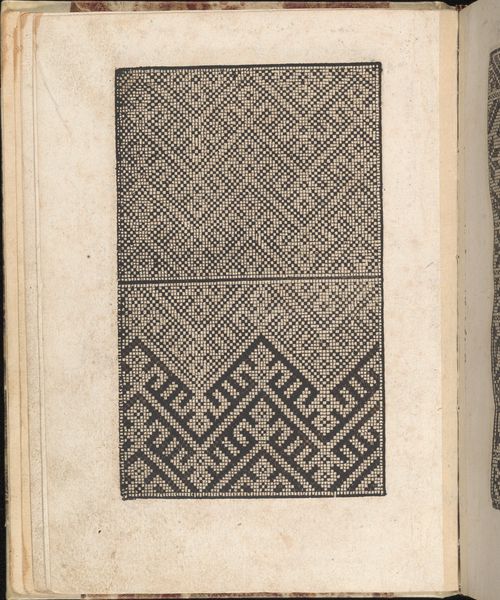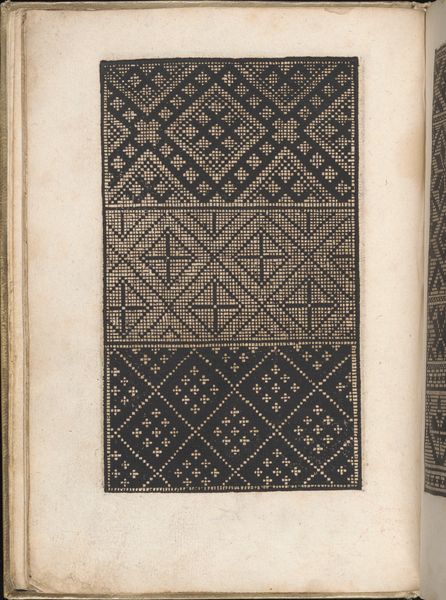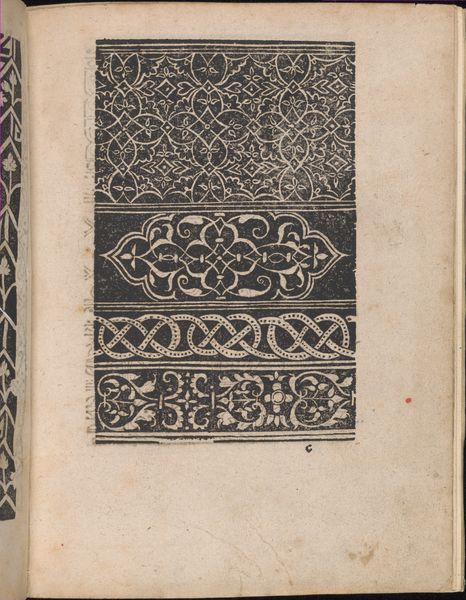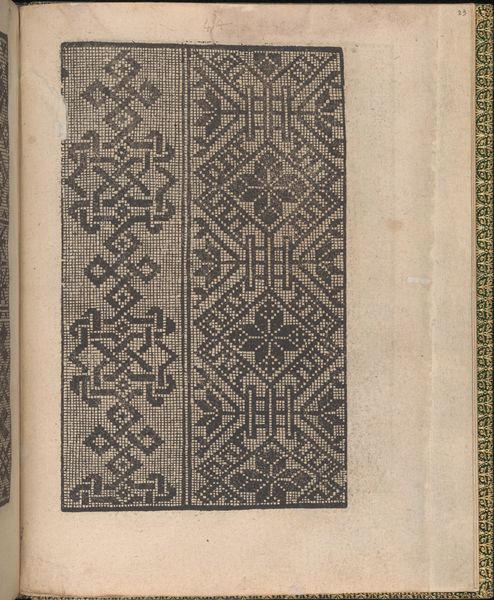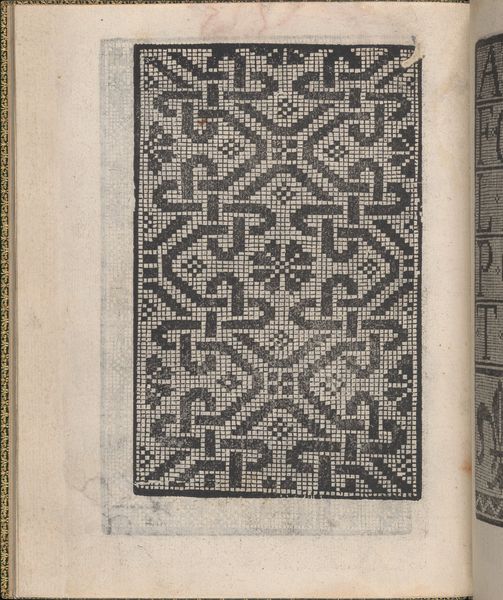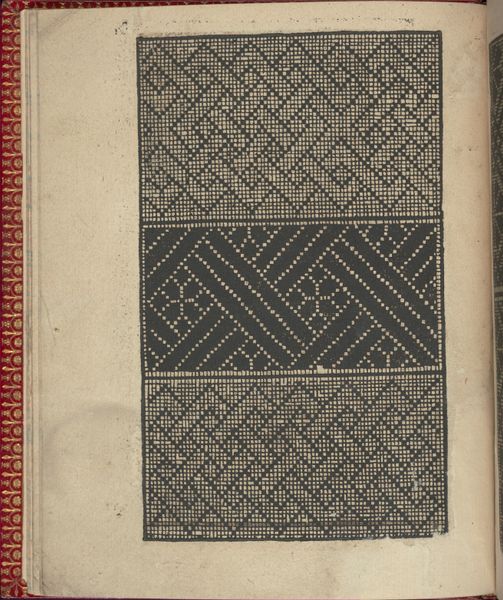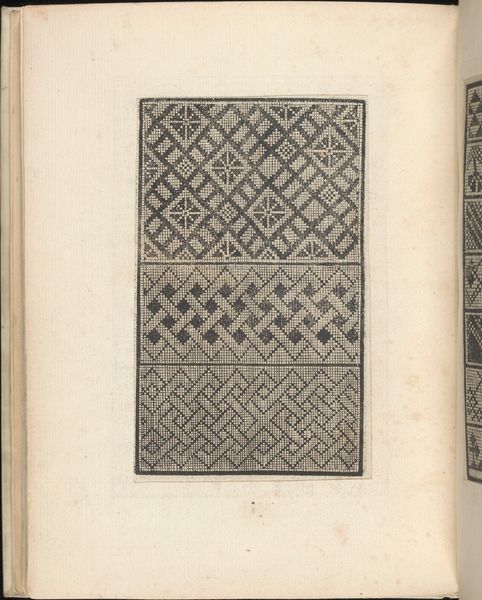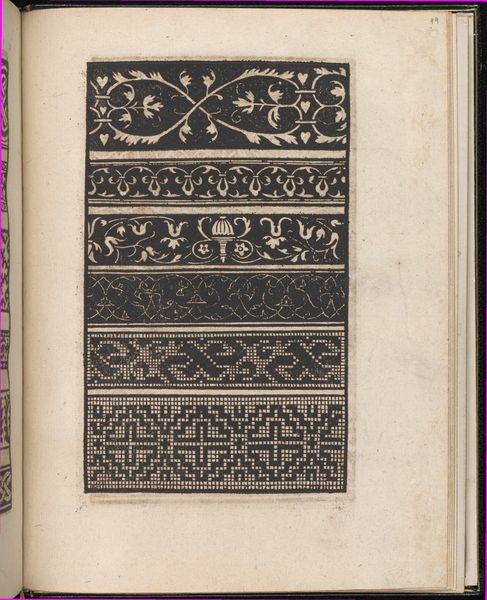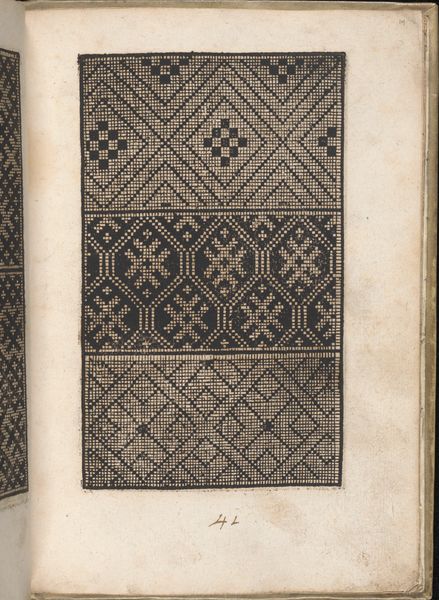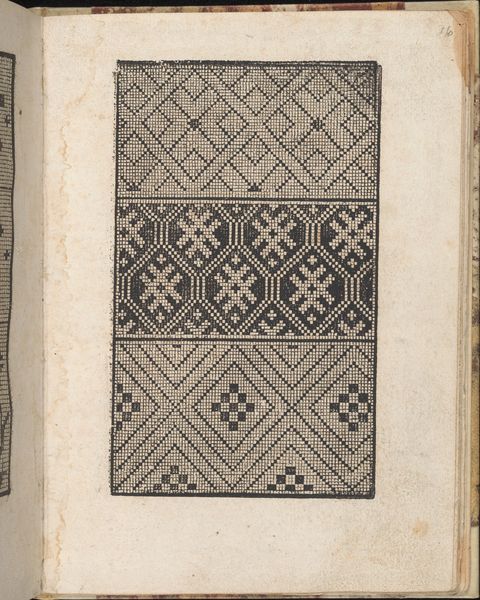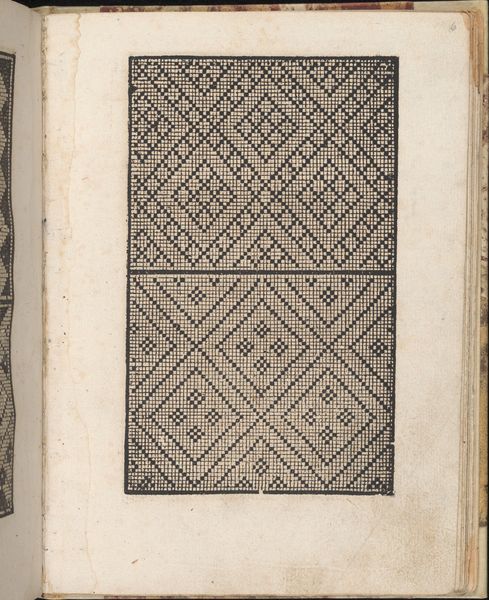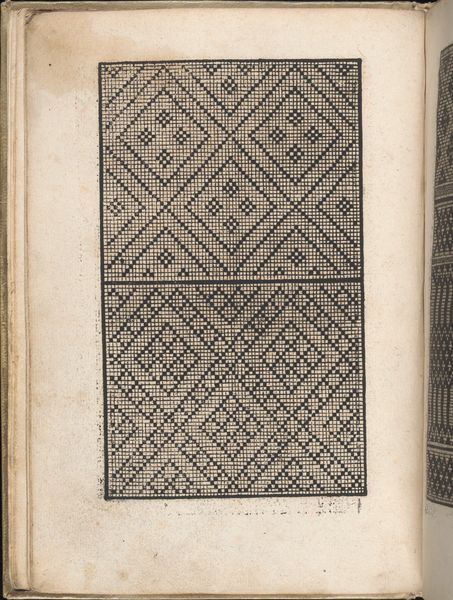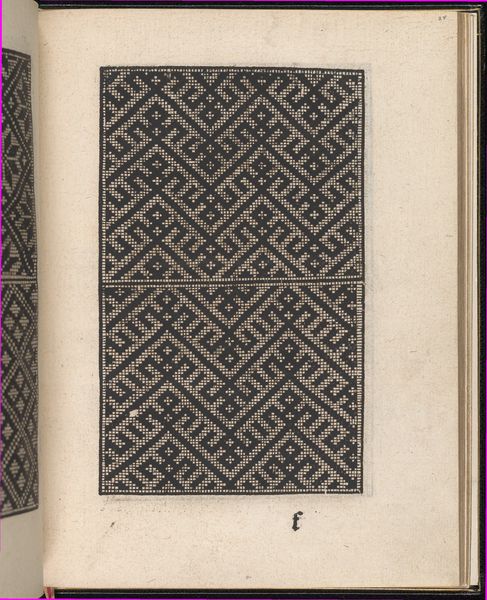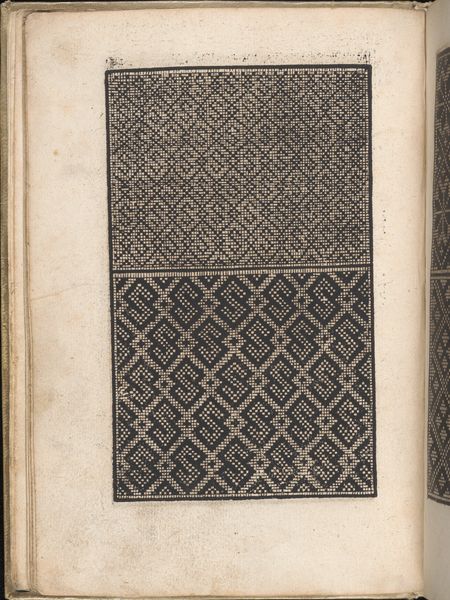
drawing, graphic-art, print, woodcut
#
drawing
#
graphic-art
#
toned paper
# print
#
book
#
11_renaissance
#
geometric
#
woodcut
#
italian-renaissance
Dimensions: Overall: 7 7/8 x 5 1/2 in. (20 x 14 cm)
Copyright: Public Domain
This is a woodcut on laid paper made by Nicolò Zoppino in the 16th century. Notice the geometric patterns that dominate this page. The intertwining maze-like design is an echo of classical labyrinths. These labyrinths, found in ancient Greece and Rome, served as powerful symbols of complexity and initiation. Think of the myth of Theseus and the Minotaur! Here, the pattern lacks a central figure, representing a journey, but is perhaps more inward-looking, a metaphor for the psychological complexities of the self. This evokes feelings of disorientation and introspection. The way the lines twist and turn creates a visual puzzle, engaging our minds and stirring our emotions. The labyrinth, therefore, is not merely a design but a reflection of our deepest subconscious wanderings. This symbol surfaces and evolves, reminding us of the timeless human quest for meaning and self-discovery.
Comments
No comments
Be the first to comment and join the conversation on the ultimate creative platform.
